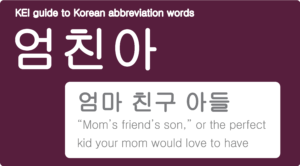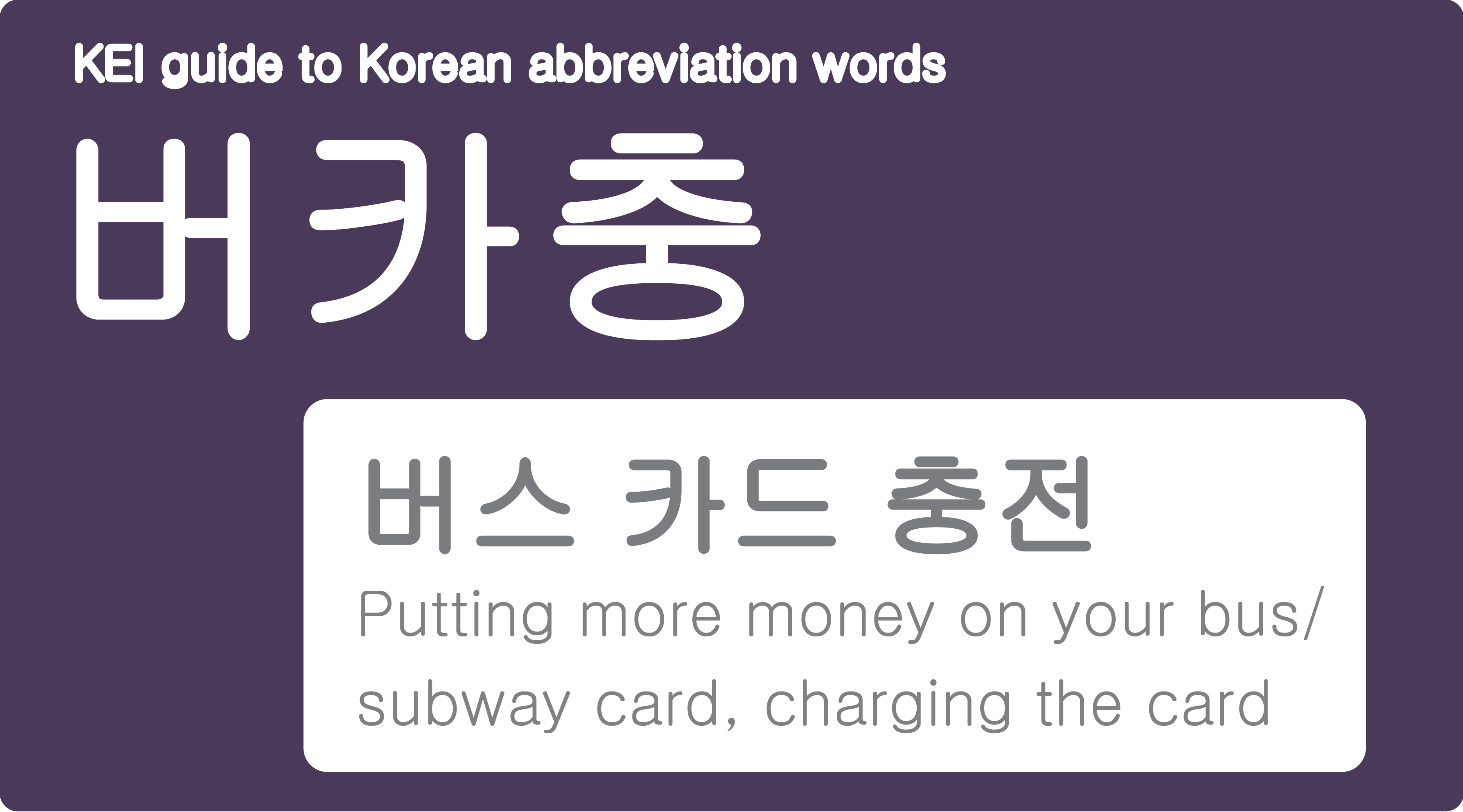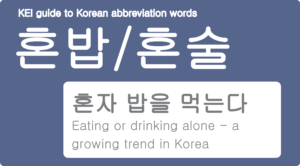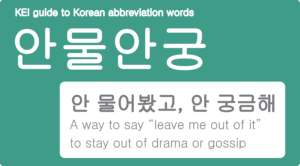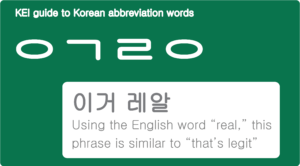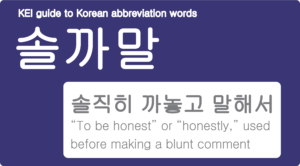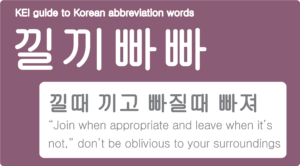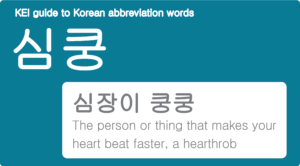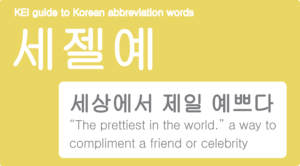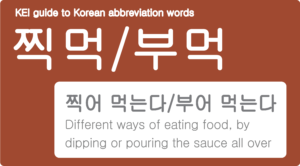The Peninsula
10 Useful Korean Slang Terms
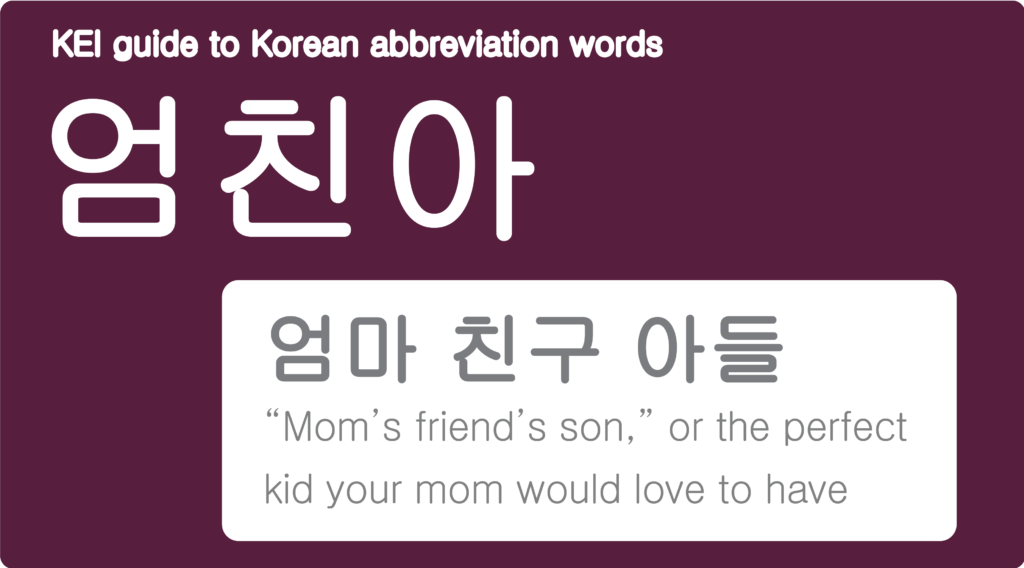
By Sang Kim and Jenna Gibson
These 신조어, or neologisms, allow people to squeeze a longer phrase into just a few syllables – perfect for texting or chatting online. Many of the phrases evolved from Korea’s gaming culture – try typing out full phrases to your opponent while simultaneously trying to direct a cyber army into battle.
Here is a list of 10 abbreviated words that Koreans use often. If you have another favorite word, please share it with us in the comments!
엄친아 – eomchinah
“엄마 친구 아들” (Mom’s friend’s son)
When you were growing up, did your mom have a friend with a perfect son who could do no wrong? Koreans invented the phrase “엄친아” (mom’s friend’s son) to describe this perfect, often unattainable, standard set by that flawless person your mom would want you to be. You can also say엄친딸 (엄마 친구 딸) for the female version.
버카충 – beokachoong
“버스 카드 충전” (Bus card charging)
Out of funds on your T-money card? Better charge it! Luckily, you can easily add money to your bus/subway card at most convenience stores as well as in subway stations. Public transportation is a major part of life in Korea, so make sure you know how to 버카충!
혼밥/혼술 – honbap/honsool
혼자 밥을 먹는다/혼자 술을 마신다 (eating alone/drinking alone)
This word emerged from a new trend in Korea – eating and drinking alone culture. According to a recent KEI blog on the subject, “Korean media commonly attribute the increase in the ‘honbap’ trend to changes in the Korean society – including the fact that society is becoming more competitive as well as the growth of individualism and an increasing number of single-person households.” In addition, it’s becoming popular as a way to have some alone time to relax and recharge away from work outings and other social obligations.
안물안궁 – anmoolangoong
“안 물어봤고, 안 궁금해” (I didn’t ask and I don’t care)
If a friend is gossiping to you or trying to put you in the middle of an argument, you can use this phrase to say “leave me out of it.” If you use this with people other than close friends, it can be seen as dismissive or rude.
ㅇㄱㄹㅇ – igeoreal
“이거레알 (real)” This is real; it’s so true
Used a lot in online chatting/gaming, this is a quick way to acknowledge that something or someone is awesome or legit, or to agree with someone.
솔까말 – solkkamal
“솔직히 까놓고 말해서” (Honestly speaking; to be honest with you)
When you hear someone start a sentence with “솔까말…” you know they’re about to be brutally honest with you. Meaning “honestly speaking,” this is a way to let people know that you’re not holding back on your opinion of something or someone.
낄끼빠빠 – kkilkkippappa
“낄때 끼고 빠질때 빠져” (Join in when it’s appropriate and leave/get out when it’s not)
This phrase is usually used when someone is being oblivious to their surroundings. For example, if a much older classmate keeps showing up at freshman parties, the students could use 낄끼빠빠 to complain to each other about that awkward scenario.
심쿵 – shimkoong
“심장이 쿵쿵” (heart racing)
Combining the word “heart” with the onomatopoeia for a quick heartbeat, this phrase can be used to describe the feeling you get when you see your crush, or the person/thing that makes your heart race.
세젤예 – saejaelyae
“세상에서 제일 예쁘다” (world’s prettiest)
This phrase comes up a lot in internet comments. If you see a story about your favorite celebrity, you can leave a comment saying that she is 세젤예 – the prettiest in the world.
찍먹 vs. 부먹 – jjikmuk vs. boomuk
“찍어 먹는다” vs. “부어 먹는다” (dipping and eating/pouring and eating)
Most commonly used with탕수육 tangsuyuk (sweet and sour pork), these two words describe whether you are the kind of person who dips pieces of food in sauce or pours the whole sauce on the plate first before eating. This can be very controversial when splitting a meal with someone for the first time!
Sang Kim is the Director of Public Affairs & Intern Coordinator. Jenna Gibson is the Director of Communications at the Korea Economic Institute of America. The views expressed here are the authors’ alone.
Image from Jhaymesisviphotography’s photostream on flickr Creative Commons.

